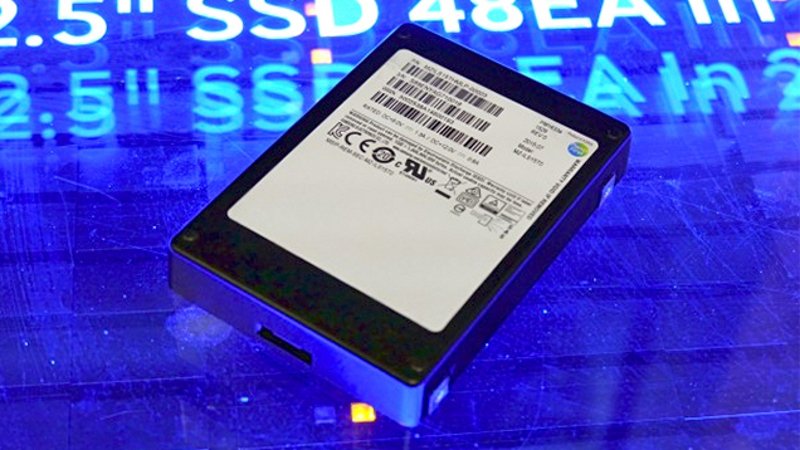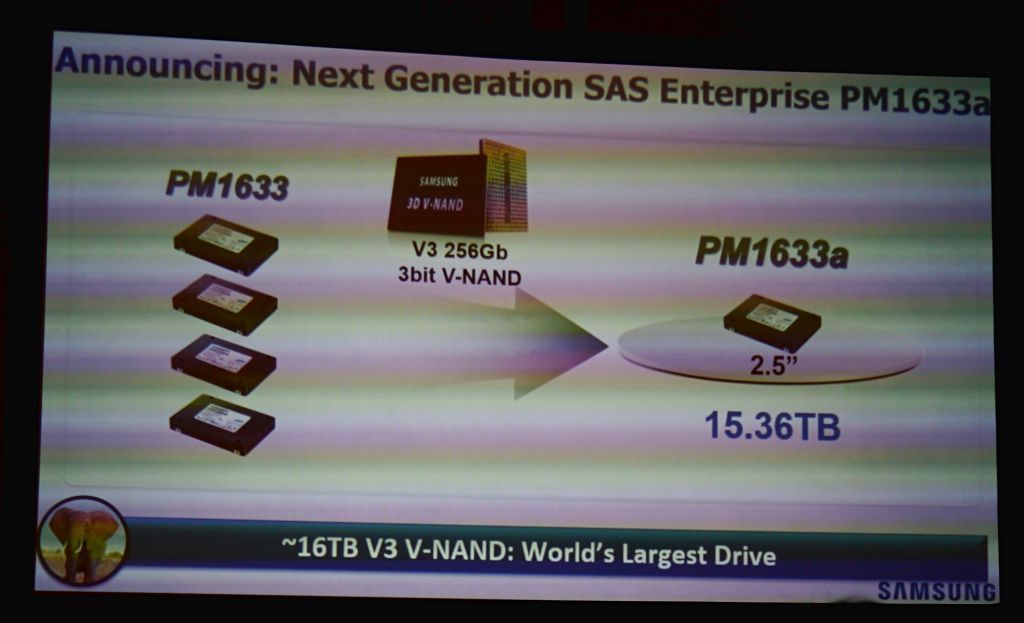If you have marveled at the blazing fast speeds that solid-state drives (SSDs) bring to laptops, gamers, and media professionals, but have been disappointed at their small capacities and large prices, get ready for a shocker. Samsung has just revealed a new 2.5-inch SSD drive with an incredible 16 terabytes of storage at the Flash Memory Summit in California. That makes it not just the world’s largest SSD—it’s actually now the world’s largest hard drive, period.
For comparison’s sake, the largest magnetic spinning drives typically top out around 8-10 TB. So how did Samsung pull off such an incredible feat?
You can thank Samsung’s newest 256 gigabit NAND flash die technology for that. Twice the capacity of 128Gbit NAND dies that other chip makers were touting last year, this is combined with a 3D stacking technique to effectively fit more storage into the same space. Traditionally, flash chips are arranged flat on a two dimensional plane, but Samsung now instead stacks several layers of memory cells next to one another to achieve greater storage density. Last year it was 36 layers, and the year before that 24.
Samsung announced the new tech by showing off a server with 48 of these new hard drives at the summit. It is able to handle up to 2 million input/output operations each second, far more than the 90,000 that the average consumer solid-state drive is able to handle. All of the tech is able to fit into a 2.5-inch hard drive enclosure, although it’s important to note that the enclosure is a little thicker than hard drive modules often found in laptop computers.
As for the price, it is eye-gougingly expensive, as you’d expect with any new breakthrough. Analysts predict the device will sell in the range of $5,000 – $7,000 and will be targeted towards enterprise customers initially. But eventually Samsung’s flashy new device will be made available to consumers and will drop in price, as well — a good thing, considering all the data-demanding VR and 4K films coming out these days.




